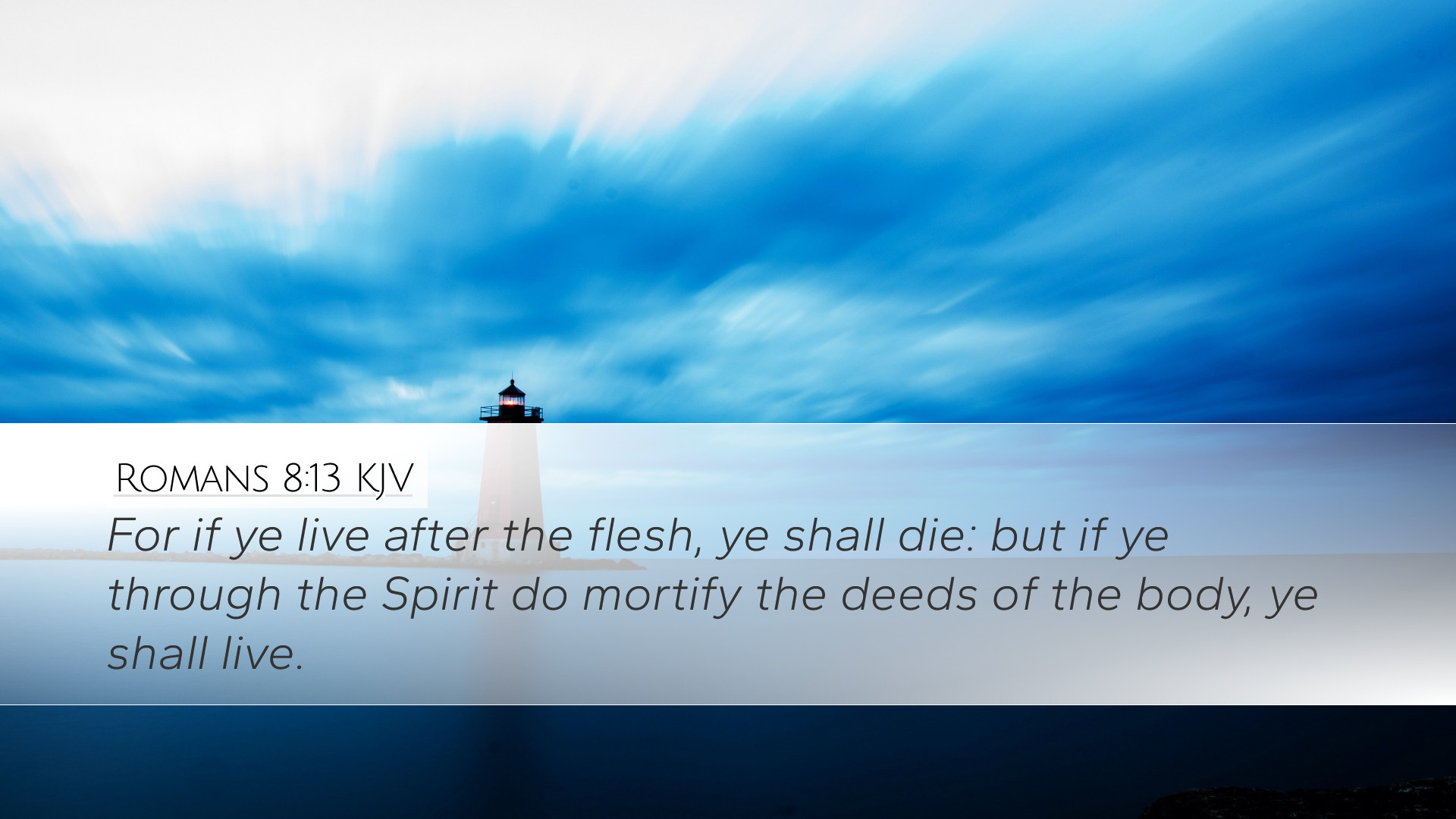Commentary on Romans 8:13
Verse: "For if you live according to the flesh, you will die; but if by the Spirit you put to death the deeds of the body, you will live."
Introduction
This verse is a profound declaration of the contrast between a life governed by the flesh and one led by the Spirit. The insights drawn from reputable public domain commentaries elucidate its theological implications and its practical applications for believers today.
Theological Insights
-
Spiritual Dichotomy: Matthew Henry reflects on the dichotomy presented between life and death, emphasizing that living according to the flesh inevitably leads to spiritual death. This death is not merely physical but denotes eternal separation from God.
-
The Role of the Spirit: Adam Clarke provides insight into the second half of the verse, highlighting the empowering role of the Holy Spirit in the believer's life. By actively engaging in mortifying sinful behaviors and desires, believers can hope for true spiritual life.
-
Flesh vs. Spirit: Albert Barnes notes that the 'flesh' in this context refers to the sinful nature and tendencies that oppose God's will. The flesh seeks momentary pleasures while leading to ultimate death, whereas the Spirit guides believers toward eternal life.
Exegesis of Key Terms
"Live according to the flesh": This phrase indicates a lifestyle governed by self-gratification and sin. Matthew Henry warns that such a life leads not only to moral corruption but also to spiritual devastation.
"Put to death": Adam Clarke interprets this as an active, ongoing process. It is not a one-time act but a continuous struggle against sin, achievable only through reliance on the Holy Spirit.
"By the Spirit": The emphasis on the Spirit underscores the grace provided to believers to overcome sin. Albert Barnes notes that this reflects a profound dependence on divine assistance, essential for a victorious Christian life.
Practical Applications
This verse serves as a critical reminder for believers regarding the seriousness of sin and the necessity of the Holy Spirit's power in one's spiritual journey. Pastors, students, and scholars can glean various applications:
- Self-Examination: Believers are called to examine their lives regularly and identify areas influenced by the flesh. They should ask if their choices align with the Spirit's leading.
- Empowerment through Prayer: Since the mortification of sin is a continuous endeavor, prayer for the Spirit's empowerment is essential in overcoming sinful behaviors.
- Community Accountability: Engaging in fellowship with other believers can provide necessary support. Shared struggles against sin can be addressed collectively, as highlighted by Matthew Henry.
Historical Context
In the context of the early Church, the Apostle Paul was addressing both Jewish and Gentile believers who faced significant cultural pressures toward moral laxity. The message in Romans 8:13 encourages them to remain steadfast in their faith amidst such temptations. It reminds all of the critical nature of living a Spirit-filled life as an act of obedience to God.
Conclusion
Romans 8:13 succinctly encapsulates the transformational journey of a believer. The implications of living according to the flesh are dire, whereas the call to live by the Spirit offers hope and assurance of eternal life. By combining the insights of Henry, Barnes, and Clarke, we gain a richer, more nuanced understanding of both the challenges and the promises available to us in Christ.


